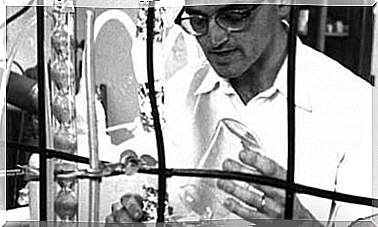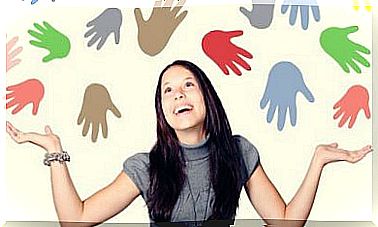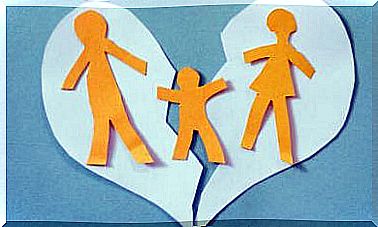How To Cope With The Loss Of Our Pet?
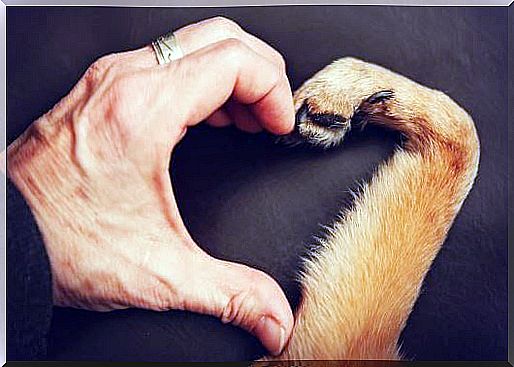
Coping with the loss of our pet is an experience that all of us who love animals experience at one point or another in our lives. But do we all experience grief and loss in the same way? The answer is no, because, despite appearing to be a universal phenomenon, the ways to handle grief present a great diversity that depends on cultural and religious factors, among others (Marqués, 2003).
In the same way that mourning for the loss of people is expressed, it is also expressed for pets. Now, what makes people come to grieve for the loss of our pet? This happens because the attachment relationship between humans and pets is reinforced by the fact that animals are seen as part of the family (Field, Gavish, Orsini & Packman, 2009).
He who does not accept to suffer, will suffer during his entire life
Thelma Duffey (2005), a doctor from the University of Texas at San Antonio, assures that the loss of our pet is generally experienced as a painful experience. To this suffering must be added the cultural taboos that are associated with the experience of mourning the loss of our pet. This pain is not usually understood by a large part of the population, which adds further distress to these grieving processes.
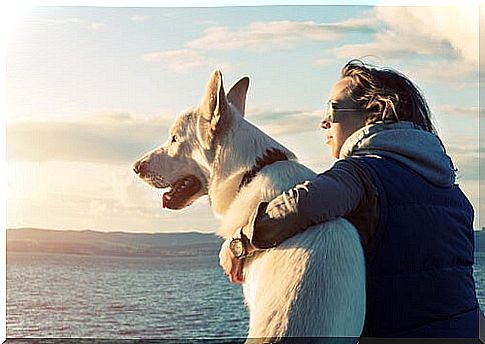
Although many of us create bonds with pets, there are others who do not develop this attachment and therefore are not able to appreciate the relationships between humans and animals. Those who do not understand this relationship tend to underestimate the loss and even make comments such as “it was just a dog”, “adopt another”, “do you get this sad for an animal?”, And so on.
The loss of a pet can be one of the most difficult moments in a person’s life, despite the fact that at a social level it is not recognized as the same emotional and emotional impact that is experienced with that of a human being. According to a study by the Department of Animal Sciences at the University of Hawaii (United States), 30% of owners feel pain for six months or more , while for 12% it is a very traumatic event in their lives.
But, how to cope with the mourning for the loss of our pet?
The grieving process is made up of four phases, the same ones we experience when someone close to us dies:
- Denial: in this phase we have not yet been able to face the loss and we use the denial of what happened as a defense mechanism to postpone the impact. It would be advisable to get rid of or keep our pet’s toys.
- Expression of emotions : sadness, melancholy or anger. There are many feelings that can appear as a consequence. To alleviate these emotions, it would be appropriate to be indulgent in the face of tears and not demand of ourselves to be well when we are not yet. We have to let the emotions express themselves and experience them, feel them as they are arising, let them surface and not try to avoid them.
- Reconstruction: in this phase is when we realize the emptiness that our pet has left us and we become aware of the daily routines that we had created with it. Routines that we were not aware of before, such as taking our dog for a walk and playing in the park with him, our “blanket and movie” moment… Therefore, it would be time to create new routines.
- We relate to the memory of our pet in another way: it is about looking ahead and going uphill towards recovery, in a calm and safe way. In this way, we will have the memory of the tremendous affection we felt towards them.
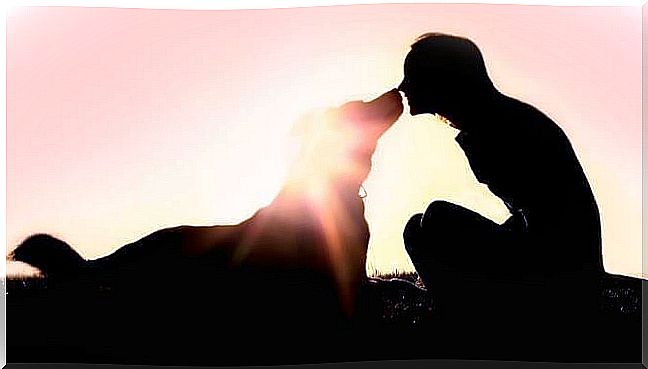
Don’t cry because it ended, smile because it happened
As in many situations, being the same, each one of us lives them differently. Thus, not all of us take the same time to recover from the grieving process for the loss of our pet.
Some of us opt for the adoption of another companion, others for not having any other pet … However, we should not feel bad if we decide to have another pet, since we have to realize that it is not a matter of “replacing” it, but of undertaking a new path full of new routines and wonderful experiences with our new pet.
Bibliography
Duffey, T. (2005). Saying goodbye: Pet loss and its implications. Journal of creativity in Mental
Health. 1 (3/4), 287-295. doi: 10.1300 / J456v01n03_18
Field, N., Gavish, R., Orsini, L. & Packman, W. (2009). Role attachment in response to pet loss. Death Studies, 33, 334-355. doi: 10.1080 / 07481180802705783
Marques, NM (2003). From the experience of grief: Reflections on the meanings of death and life. Pontifical Catholic University, Ponce, PR

